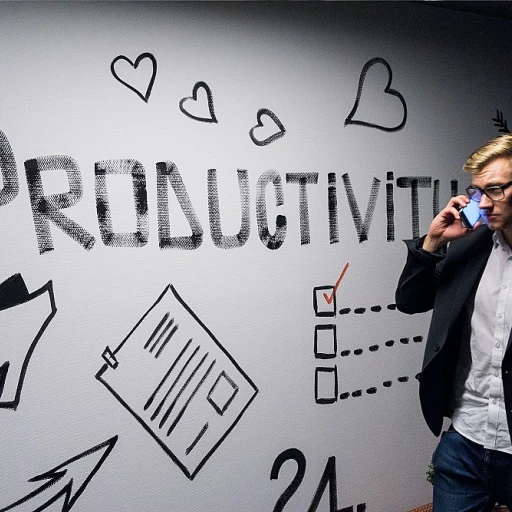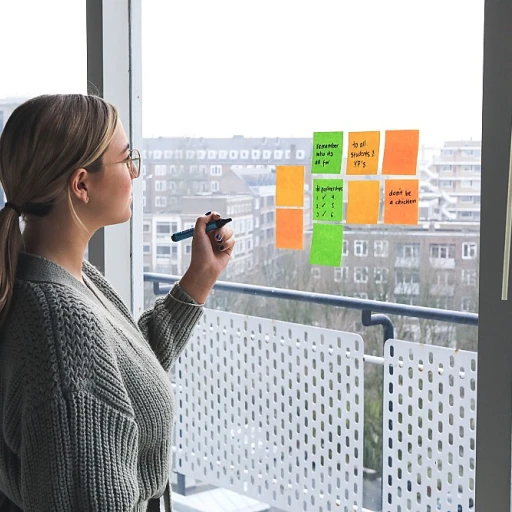
The Role of HR in the Interview Process
HR's Integral Role in the Interview Process
In the hiring process, the role of Human Resources (HR) is pivotal. HR professionals are often the first point of contact for candidates, setting the tone for the entire interview experience. Their responsibilities extend beyond just scheduling interviews; they are tasked with ensuring that the process is smooth and efficient, reflecting the company culture and values.
HR's involvement in the interview process typically includes:
- Screening Interviews: HR conducts initial screenings to assess whether candidates meet the basic qualifications for the position. This step helps in filtering out unsuitable candidates early in the process.
- Coordinating Interviews: They organize and schedule interviews, ensuring that both the interviewers and candidates are well-prepared and informed about the interview format and expectations.
- Developing Interview Questions: HR works closely with hiring managers to develop relevant interview questions that align with the job requirements and company goals.
- Evaluating Candidates: After interviews, HR plays a crucial role in evaluating candidate responses and providing feedback to hiring managers, aiding in the hiring decision.
HR professionals must possess strong communication and organizational skills to manage these tasks effectively. Their ability to conduct interviews with empathy and professionalism can significantly enhance the candidate experience, making candidates feel valued and respected throughout the process.
For more insights on navigating the interview process, you can explore this guide for job seekers.
Different Types of Interviewers in HR
Variety of Interviewers: Unlocking Diverse Perspectives
In the landscape of human resources, the responsibility for conducting interviews does not fall on a single individual or type of interviewer. HR professionals understand that bringing diverse perspectives to the table is crucial in evaluating the suitability of candidates for particular roles. This diversity ensures a comprehensive assessment of an interview candidate’s fit within the company culture and job requirements. Firstly, HR recruiters often play a pivotal role, especially during the initial screening interview. These interviews typically focus on assessing whether the candidate meets the necessary qualifications and salary expectations for the position. HR recruiters can efficiently filter candidates who meet the criteria before advancing them to the next round of interviews. Next are the hiring managers, who are usually closer to the position's specific requirements and workplace dynamics. Their involvement is key in identifying the nuances of a candidate's potential impact and contribution to the team. By having firsthand experience with the job's demands, hiring managers can craft interview questions that delve deeper into a candidate's skills and experience. Behavioral interviewing is another approach widely adopted by HR interviewers. This technique helps in revealing how candidates have acted in previous work situations, providing insights into their problem-solving abilities and interpersonal skills. For more insights into what you might encounter during an interview process for specific roles, such as a teacher aide, check out this guide on what to expect in a teacher aide interview. HR professionals may also collaborate with other team members to conduct panel or group interviews. These type interviews, in particular, help ensure that the selected candidate aligns well with both the subject matter and the existing team dynamics, thereby contributing positively to the workplace. By understanding who conducts interviews in HR, candidates can better prepare and manage their own interview experience, ultimately aligning with the company’s broader hiring objectives.Skills Required for Conducting Effective Interviews
Essential Skills for Effective Interviewing in HR
Conducting interviews is not just about asking questions and recording answers, it's about understanding and evaluating whether a candidate is the right fit for the job and company. This requires a unique set of skills tailored to human resources professionals tasked with leading interviews. First and foremost, strong communication skills are crucial. The ability to listen actively and pick up on verbal and non-verbal cues can significantly enhance the interview process. Active listening not only helps in understanding the candidate’s responses but also makes them feel valued, enhancing the overall candidate experience. Behavioral interviewing skills are also vital, as HR professionals often use this technique to uncover how candidates have handled situations in the past, which may predict future performance. By asking the right questions, interviewers can gain insights into a candidate's problem-solving skills and adaptability. Additionally, interviewers must have a keen sense of empathy. Understanding a candidate's perspective and making them feel comfortable can lead to more honest and insightful responses. Empathy helps HR professionals connect with candidates on a personal level, which can be especially important during screening interviews. A thorough understanding of the role and company culture is another essential skill. Being well-versed in the specific position and how it aligns with company values allows interviewers to assess candidates' potential fit and contribute effectively to the hiring decision. Time management is essential, as interviews typically involve coordinating with various schedules. Efficiently managing time helps in conducting interviews smoothly without unnecessary delays, respecting the candidate's time and the hiring process. Lastly, critical thinking and decision-making skills are crucial to evaluating the information gathered and making an informed hiring decision. For those looking to enhance their interview skills, understanding the role of staff appraisals in hiring can provide valuable insights into aligning candidates with organizational needs, as discussed in this insightful article. Developing these skills can significantly help HR professionals conduct interviews that are not only effective but also leave a positive impression on candidates, ultimately improving the overall hiring process.Challenges Faced by HR Interviewers
Overcoming Interview Challenges in Human Resources
The task of conducting interviews comes with its own set of challenges for HR professionals. Navigating these obstacles can significantly impact both the hiring process and the overall candidate experience. Let's explore some of the common challenges faced by HR interviewers. Firstly, striking the right balance in interview questions is crucial. While it's important to gather enough information to make informed hiring decisions, HR professionals must avoid overwhelming candidates with excessive questioning. This involves carefully crafting questions that align with the specific job and company culture, ensuring a thorough understanding of a candidate's skills and experience without veering off into unrelated topics. Another challenge is managing time effectively during the interview process. Given the often extensive and detailed nature of job interviews, there is a risk of running over time, which can impact the rest of the day's interviewing schedule and leave candidates feeling rushed or undervalued. HR professionals must be adept at pacing each interview to cover all necessary areas while respecting the candidate's time. HR interviewers also face the challenge of maintaining consistency across different interviews. This is particularly crucial in behavioral interviewing or when conducting multiple rounds of interviews. Consistency ensures that every candidate is evaluated using the same criteria, thereby minimizing bias and making the selection process fairer and more transparent. Moreover, the pressure to make the right hiring decision can be intense. HR professionals often have to weigh a candidate's qualifications, experience, and cultural fit within the company. This can be challenging, especially when multiple candidates seem equally qualified. Here, it's essential to rely on structured interview processes and rubrics designed to objectively compare candidates. Additionally, HR interviewers must be prepared to address candidate questions about the role, company, and next steps in the hiring process. Providing clear and honest answers can help build trust and improve the candidate experience, ultimately reflecting positively on the company. Lastly, interviewers need to be prepared for unexpected challenges, such as technical difficulties during virtual screenings or addressing sensitive topics that may arise. Staying adaptable and having the right resources at hand can help overcome these hurdles, ensuring that the candidate experience remains smooth and professional. In conclusion, while conducting interviews in human resources can be challenging, understanding these potential obstacles and preparing accordingly can significantly enhance the effectiveness and efficiency of the interview process. By employing best practices, HR professionals can contribute to a more positive and productive hiring experience for all involved.The Impact of Interviewers on Candidate Experience
The Influence of Interviewers on Job Seekers' Experience
The role of the interviewer in the hiring process holds substantial weight in shaping a candidate's overall experience. Given the structured variety in interview types—ranging from behavioral interviewing to screening interviews and multiple round interviews—the interaction between the interviewer and candidate is crucial. The experience candidates have during their interviews not only leaves a lasting impression on how they view the company culture but directly influences their decision to join the company. Human resources professionals, often at the forefront of conducting these interviews, must balance rigorous evaluation with creating a welcoming environment. Candidates appreciate when interview questions resonate with the role they're applying for, respecting both the company's expectations and the candidate's skills. A successful interview reinforces the candidate's perception of being respected and valued. By employing effective communication, ensuring appropriate scheduling respecting candidate time, and conducting interviews with empathy, HR professionals can vastly improve the candidate experience. Moreover, interviewers should be trained to manage expectations around challenging topics, such as salary expectations, ensuring discussions are both transparent and considerate. Incorporating user feedback from prior interviews and continually refining interview questions can help interviewers maintain relevance and precision. By doing so, HR can align closely with the company's hiring objectives while enhancing the candidate's experience, leading to positive hiring decisions and successful onboarding into new positions.Best Practices for HR Interviewers
Adhering to Best Practices for Streamlined Interviews
Navigating interviews in human resources requires a structured approach to ensure that both parties, interviewer and candidate, have a positive and productive experience. Demonstrating best practices is key to achieving successful outcomes.- Preparing Thoroughly: Before an interview, HR interviewers must have a comprehensive understanding of the job description, position requirements, and desired candidate skills. This preparation enhances the quality of the interaction and ensures the candidates are assessed accurately.
- Crafting Relevant Interview Questions: Interview questions should align with the job role and help identify the right fit for the company culture. Questions should be open-ended to elicit detailed responses. Aligning questions with the skills required allows interviewers to make informed hiring decisions.
- Consistency Across Interviews: Implementing a standardized process aids in maintaining fairness and objectivity. Using behavioral interviewing techniques helps probe deeper into the candidate's past experiences, providing a clearer picture of their potential performance.
- Ensuring a Positive Candidate Experience: The role of HR in the interview process extends beyond evaluating skills; it also involves representing the company positively. Prompt communication and respect for candidate time contribute significantly to a favorable perception. Providing feedback is also crucial in helping candidates improve, irrespective of the hiring decision.
- Continual Skills Development: HR professionals must continually enhance their interviewing skills through training programs and workshops. This equips them to adapt to various interview types, such as screening interviews, and effectively manage workplace investigations.













